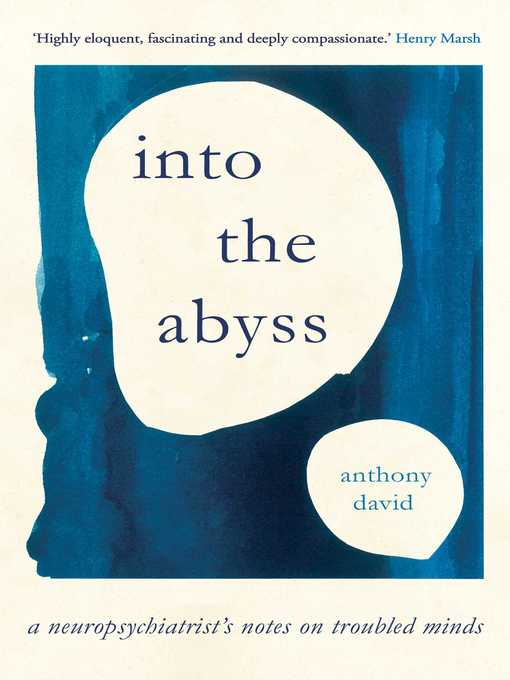
Into the Abyss
A neuropsychiatrist's notes on troubled minds
یک یادداشت کوچک در ذهن آشفته،
کتاب های مرتبط
- اطلاعات
- نقد و بررسی
- دیدگاه کاربران
نقد و بررسی

Starred review from December 1, 2019
That psychiatric illness is at least partly brain disease still provokes skepticism in some circles, but these compelling case reports make a convincing argument. In his first book, psychiatrist David (co-author: Lishman's Organic Psychiatry, 2009), director of the University College London Institute of Mental Health, writes that journalistic accounts of mental health "either lament the overdiagnosis and the medicalization of life or blame it all on modern society. The real problem, they say, is social media, sexual abuse, drugs, poverty, wealth, patriarchy, feminism, religion, lack of religion...the list goes on." After agreeing that social and personal stresses play a role--as they do in obesity, heart disease, allergies, and numerous other conditions--the author proceeds to discuss a dozen patients whose illnesses can only be explained by a combination of biology, psychology, and sociology: the "biopsychosocial model of mental disorder." Among David's case studies are a man who suffered a catastrophic accident that left him with severe brain damage, from which his body recovered but not his personality; two different patients who were completely paralyzed despite tests that showed their brains were awake and functioning; and a schizophrenic woman who developed Parkinson's disease, which doesn't make sense because Parkinson's, a neurological disorder, results from a deficiency of dopamine, a chemical that transmits nerve signals in the brain; schizophrenia is thought to involve a dopamine excess. David comes across as a compassionate physician and talented writer who works hard to demonstrate the biopsychosocial model and usually succeeds. Americans will note that a major social source of treatment failure--inability to afford it--doesn't apply in Britain's National Health Service, and several of his long-term triumphs could not have been repeated in the U.S. The cases are complex and sometimes so bizarre that it's often difficult to apply their lessons to familiar disorders, but readers will be captivated. Fascinating stories from the practice of a skilled neuropsychiatrist.
COPYRIGHT(2019) Kirkus Reviews, ALL RIGHTS RESERVED.

December 9, 2019
A handful of case studies provide the jumping-off point for this fine debut memoir from David, longtime consultant psychiatrist for Maudsley Hospital in London. Displaying intellectual curiosity and pragmatic compassion, David focuses on cases in which the physiological and the psychological converge. These include a traumatic brain injury that led a patient to believe life was unreal, an eating disorder triggered by an awareness of historical atrocities, and a neurological disorder provoked by family stress. David quietly builds understanding and respect for his patients, always stressing that their behavior, even when objectively nonsensical, makes sense to them. He also candidly addresses the challenges of being in the role of medical authority, whether noting his peers’ lack of sympathy for those with self-inflicted injuries, managing the unwillingness of the U.K.’s National Health Service to approve specialist treatment, or resisting a father’s desire to discontinue his child’s treatment for non-epileptic seizures. Readers will come away from this thoughtful work feeling a sense of connection to both the patients profiled and the practitioners who aim to understand them.

February 1, 2020
Cognitive neuropsychiatrist David (director, Inst. of Mental Health, Univ. Coll. London) elegantly describes case studies from his decades-long career that illustrate the complex tangle of biological, psychological, and social factors influencing mental health. Exploring his own ideas on the subject while simultaneously breaking down key medical concepts into accessible language, David creates a work that reads like a memoir. The cases are distinct, the diagnoses elusive, and the personality of each patient comes through with warmth and care. The author doesn't gloss over the reality that sometimes there are no definitive answers or perfectly happy endings, but he maintains a spark of hope that keeps the narrative from becoming bleak. VERDICT Readers seeking a realistic approach to understanding the potential causes of mental illness will appreciate David's thought-provoking reflections, as will mental health professionals and fans of Oliver Sacks's The Man Who Mistook His Wife for a Hat.--Rachel Hoover, Thomas Ford Memorial Lib., Western Springs, IL
Copyright 2020 Library Journal, LLC Used with permission.

























دیدگاه کاربران